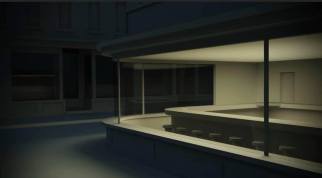From David Ruccio Motto In the dark times, will there also be singing? Yes, there will be singing. About the dark times. – Bertolt Brecht ( trans. John Willett, from the Svendborg Poems) I’ve been on a bit of a hiatus for the past two months (the last real post, aside from daily cartoons, was back in January). But readers have encouraged me to get back in the game and resume my “occasional” commentary on economics, culture, and society. Right now, in these dark times—as the number of confirmed cases of and deaths from the novel coronavirus pandemic, in the United States and around the world, continues to soar—we’re focused on immediate measures, individually and socially, to stay safe. And, of course, capitalist economies are in meltdown, not only in stock markets, but with massive
Topics:
David F. Ruccio considers the following as important: Uncategorized
This could be interesting, too:
tom writes The Ukraine war and Europe’s deepening march of folly
Stavros Mavroudeas writes CfP of Marxist Macroeconomic Modelling workgroup – 18th WAPE Forum, Istanbul August 6-8, 2025
Lars Pålsson Syll writes The pretence-of-knowledge syndrome
Dean Baker writes Crypto and Donald Trump’s strategic baseball card reserve
from David Ruccio

Motto
In the dark times, will there also be singing?
Yes, there will be singing.
About the dark times.
– Bertolt Brecht
( trans. John Willett, from the Svendborg Poems)
I’ve been on a bit of a hiatus for the past two months (the last real post, aside from daily cartoons, was back in January). But readers have encouraged me to get back in the game and resume my “occasional” commentary on economics, culture, and society.
Right now, in these dark times—as the number of confirmed cases of and deaths from the novel coronavirus pandemic, in the United States and around the world, continues to soar—we’re focused on immediate measures, individually and socially, to stay safe. And, of course, capitalist economies are in meltdown, not only in stock markets, but with massive unemployment (which the Trump administration wants states to hide from view) and increasing precarity for millions and millions of already precarious workers.
The provision of much-needed medical supplies, school closures and other measures that encourage social distancing (or, my preference, distant socializing), “stay at home” orders, lots more testing—all are desperately required. As well as are funds and policies that protect workers who have few protections against unhealthy and unsafe working conditions and, through no fault of their own, are losing their jobs and being forced to find ways of surviving in the midst of the current chaos.
Immediate measures, then, to keep people safe and financially secure.
But we also need to be thinking about what all this means, for ourselves and for our economy and society going forward. We need to discuss and debate not only the immediate measures being proposed and adopted, but also what this portends for our collective future.
As for myself, I am particularly interested in the way the existing common sense may be shifting—in darker directions, to be sure, but also in opening up new possibilities. As a friend wrote to me just yesterday, maybe there’s some hope in the fact that “at least some governments feel compelled to feed, house, and save people, [which] may be a great lesson in the reality that stands behind property and the ‘laws of economics’: social labour that we can socially allocate.”
That, it seems to me, is our challenge in the days, weeks, and months ahead—to think seriously and critically, perhaps against all odds, about our current situation and to be ruthless in that criticism “both in the sense of not being afraid of the results it arrives at and in the sense of being just as little afraid of conflict with the powers that be.”
